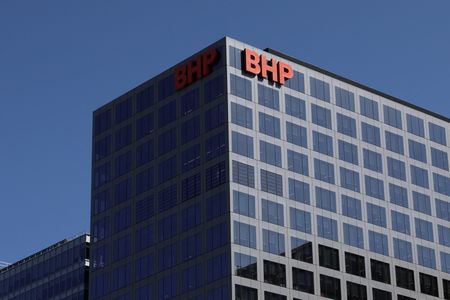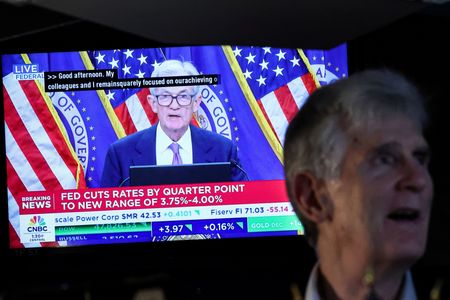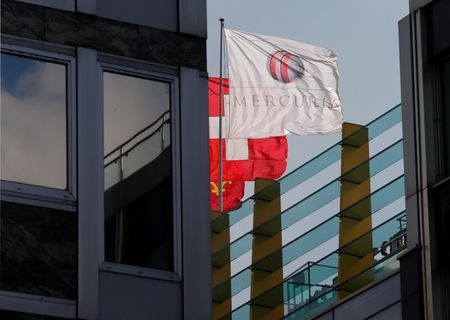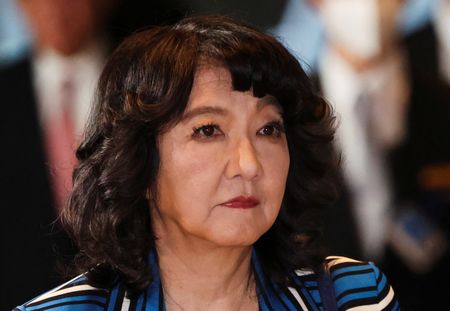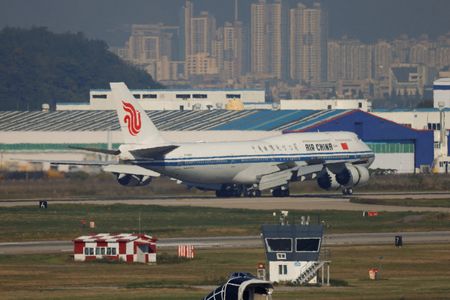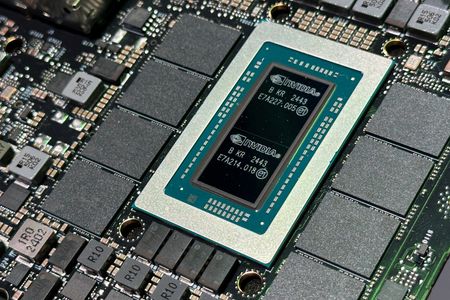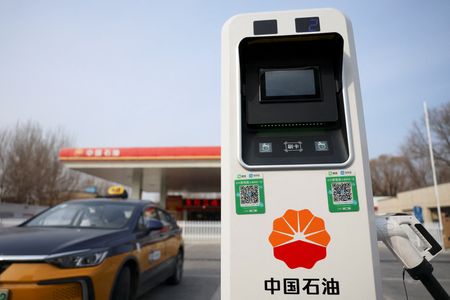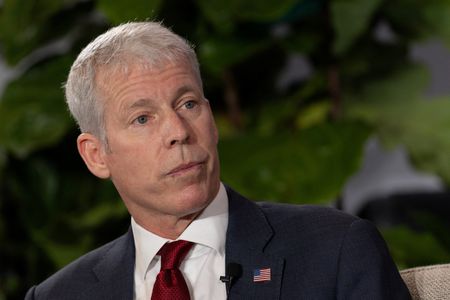MELBOURNE (Reuters) -BHP, the world’s biggest miner, and South Korean steelmaker POSCO said on Thursday that they have signed an agreement to advance the production of “near zero emissions” iron, a major step in manufacturing green steel.
The iron will be produced at a demonstration plant at POSCO’s steelworks in South Korea’s portside city of Pohang, using a hydrogen-based production process and an electric smelting furnace.
Construction is set to begin soon with commissioning targeted for early 2028. It is slated to have the capacity to make 300,000 metric tons a year.
A ton of steel made through a blast furnace, which accounts for the majority of the world’s steel production, produces around 2.3 tons of carbon dioxide while the sector accounts for 8% of global emissions, according to the International Energy Agency.
In comparison, when crude steel is produced from iron ore without using scrap and with emissions of 0.4 tons of carbon per tonne of crude steel or less, it can be classified as having used “near zero emissions” iron.
Australia’s iron ore is typically too low grade to make green steel without an additional processing step, which could make it less competitive in a lower carbon future than higher grade ores produced in Brazil.
(Reporting by Melanie Burton; Editing by Edwina Gibbs)

